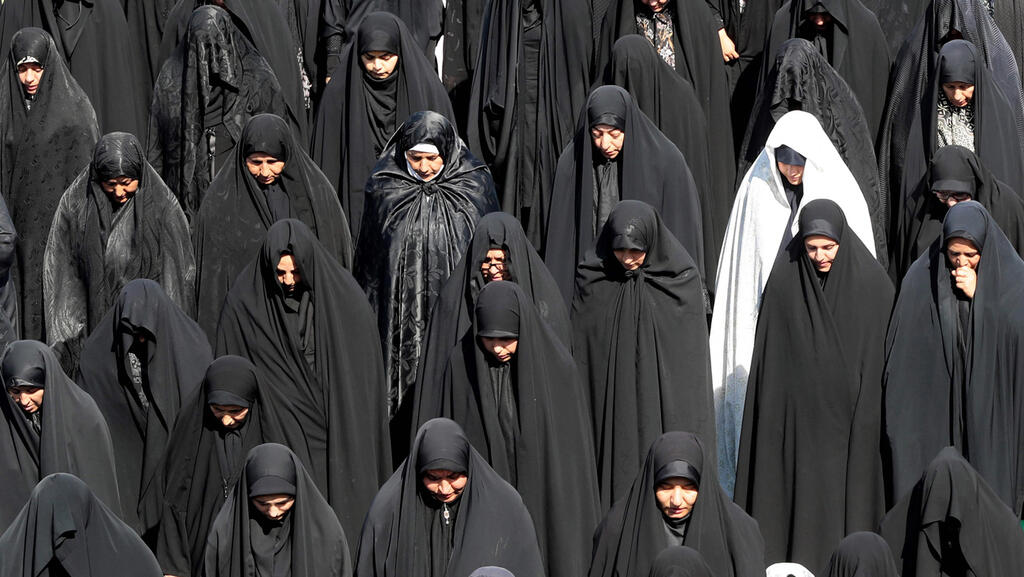For quite some time now, whenever I see my Israeli friends discuss the role of religion in their country, I’d like to tease them: “Let me warn you. I was born and bred in a religious republic and I can assure you that theocracy is no fun.” I mean the Islamic Republic of Iran, the regime that has ruled my country since 1979.
Read more:
I used to say that mostly as a playful joke. Israel, with its relatively liberal social rules and robust public sphere, hardly seems to be in real danger of becoming a theocracy. Even though religious parties of the Haredi community have long taken part in governance, they seem to be confined to their corner. But, watching the vitriol spewed over the incidents in Tel Aviv’s Dizengoff Square during Yom Kippur last weekend, I feel like my warnings are now getting more serious – and taken more seriously by my friends.
Israel was founded by secular nationalists, most of whom were not particularly religious. However, the founders made compromises with rabbinical authorities by giving them certain powers that made Israel less secular than most other developed countries.
Of late, religious and anti-secular parties have become much more central to Israeli politics – and are a linchpin of its current government. Long before the sensational debate about the Dizengoff affair, we’ve seen cases of the Knesset banning bread in hospitals over Passover, of buses allegedly segregated by gender, of swimming pools being forced to close down on the Sabbath. Of course, it’s also the religious fanatics that lead the policy of settlement building in the West Bank which has prolonged the occupation of Palestinian lands and threatens to make Israel into an international pariah.
I am thus obliged to take to these pages to repeat my warning, as an Iranian, to Israelis, no more in jest but in a stern tone: Allowing religious rules to take over legislation and public life will lead to nothing good for a country, even, perhaps even especially, for those who are truly devout. The latter might sound surprising to some. Aren’t the devout Muslims the obvious beneficiaries of an Islamic Republic like Iran?
The answer is no. You see, when religion takes over politics, this poisons not just politics but also religion. All you need to do is to compare Iran before and after 1979. In the 1970s, Iran led by the Shah was an autocratic place with thousands of political prisoners and little press freedom. Still, achievements of secularism meant that Iran had one of the most progressive and-friendly family laws in the region, that there was unprecedented religious freedom available to non-Muslim minorities such as Jews, Christians and Baha’is, and that men and women were free to abide, or not abide, by religion in their public and private lives.
This gave rise to amazing diversity. In a single family, some women would wear various forms of hijab and some would don bikinis to the beach. But even many of the latter remained sympathetic to Islam and respected it as an intellectual and moral force. Many who weren’t terribly observant would still fast for a couple of days during Ramadan or wear the long cloak known as a chador during their visits to the holy shrines. But 44 years of the Islamic Republic has turned Iran not into a more devout society but to its very opposite.
The Iranian society today harbors more anti-Islamic sentiments than perhaps any other Muslim society on the planet. Authorities themselves confess that most mosques struggle to find worshippers. Some polls even show that only about 30% of Iranians now identify as Shia Muslims.
For people of my generation (I was born in 1988), the only Islam they know is the Islam enforced by the regime, the Islam that forces women to cover their hair at the cost of arresting or even killing them, the Islam that punishes young people with flogging because they listened to the wrong music or enjoyed an alcoholic drink.
Crucially, this isn’t just about social conservatism versus libertinism. But about abuse of religion for self-serving gain. Once religion becomes a tool for power and enrichment, anybody can fake their way into it, leaving many of the genuinely devout in distress. The rulers of the Islamic Republic exemplify this hypocrisy: They give long speeches about how they want to ban “Western lifestyles” in Iran while dispatching their sons and daughters to expensive lives in Toronto, London and Berlin.
That’s why the society now often associates religion not with spirituality but with corruption and repression. Before 1979, it was common for people to show respect upon the sighting of the clerical garb. People would give their seats to a mullah on a bus. Today, many mullahs openly say that they no longer wear the garb in social settings, out of fear of reprisal from passers-by. Not only they don’t get the seats on Tehran’s buses and metro, but many a taxi driver refuses to pick them up. At the same time, the Islamic Republic has set up a Special Court of Clergy which is tasked with supervising the clerics, punishing them with defrocking, prison, torture and even execution.
Ironically, the Shia clerical class which had maintained its independence for centuries under various monarchies has finally lost them under the Islamic Republic. Many Iranians today, irrespective of how religious they are, long to go back to a time when men of religion were limited to religion and didn’t dominate politics. They do so not just because of the corrosive effect of Islamist repression on politics; but because they miss a time when religion hadn’t been sullied with nasty gives-and-takes of politics; when God and Caesar had separate realms.
Take it from an Iranian: No matter how devout you are, don’t lose your shaky secularism.


